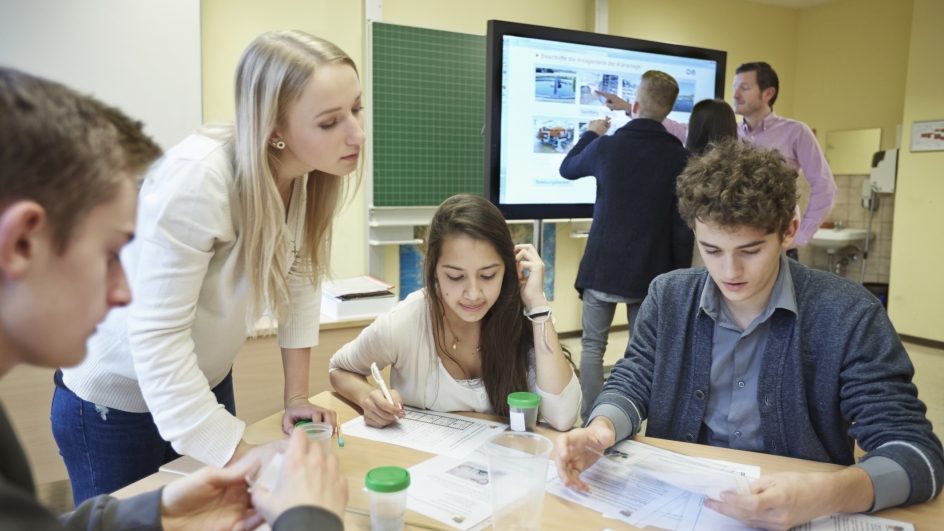
How education can succeed
Educational researcher Manfred Prenzel talks about enthusiasm for the natural sciences and how education can succeed.
Mr. Prenzel, you have worked intensely with the pedagogy of the natural sciences. Was there an experience in your own time at school that had a long-lasting impact on you?
I was always really interested in the natural sciences, but the lessons were usually pretty mundane. I remember one time when the highlight of the lesson was dissecting a cockroach and then observing the left leg under the microscope. That was pretty exciting for us! (Laughs) But a key factor was missing in that example: no research questions were asked, by the teacher or by us. No one asked why we were doing that or what we were supposed to learn.
Given that context, how would you define a good classroom lesson?
That is best described by starting at the end. A lesson is »good« when the students learned what the lesson plan and the teacher had hoped to teach, when the students understood the materials, when they are excited, and when they can transfer the lessons and results to their day-to-day experiences and create a connection to their lives. The results are what matter, and there are almost always different ways to achieve them.
Is that what it comes down to?
Yes, absolutely. From my point of view, clearly defined goals are especially important. The students should be told at the beginning what a lesson will be about, why it is important, and what they will understand and be able to do at the end. Secondly, it is important that learning is continually accompanied. Teachers have to keep their eyes open to see when students are having problems with the subject matter. Accompanied learning is also tied to social conditions. The students should feel accepted and respected, even when they might not quite be able to do something. Finally, it is important that teachers support the initiative of their students to learn on their own so they are able to take matters into their own hands to some extent.
Education is said to be the key for innovation. Can innovation be encouraged through education?
Education is a necessary condition for all kinds of innovation, but not the only one. Education that emphasizes independence and creativity fosters better conditions for innovation than a tightly prescriptive and dogmatically construed version of education.
Can education itself be a social innovation?
If everybody has access to the type of education I just described, I see that as a social innovation. Education should also take into account the people and their talents. In Germany, for example, children who thrive in handicrafts or creative fields tend to have a tough time in school because our schools strongly emphasize analysis. But schools should be open for varying talents. Most importantly, education should highlight the social dimension of learning. Discoveries are rarely made by some secluded scientists. Research builds on the knowledge of others and is a team effort to a large extent. The only way to answer questions, engage in controversial discussions, and create results is by working together. Once the power of collaborative effort is experienced, it creates a new perspective on the social side of things, on living and working together. That is really why education and social innovation are closely linked to one another.
May 2015



